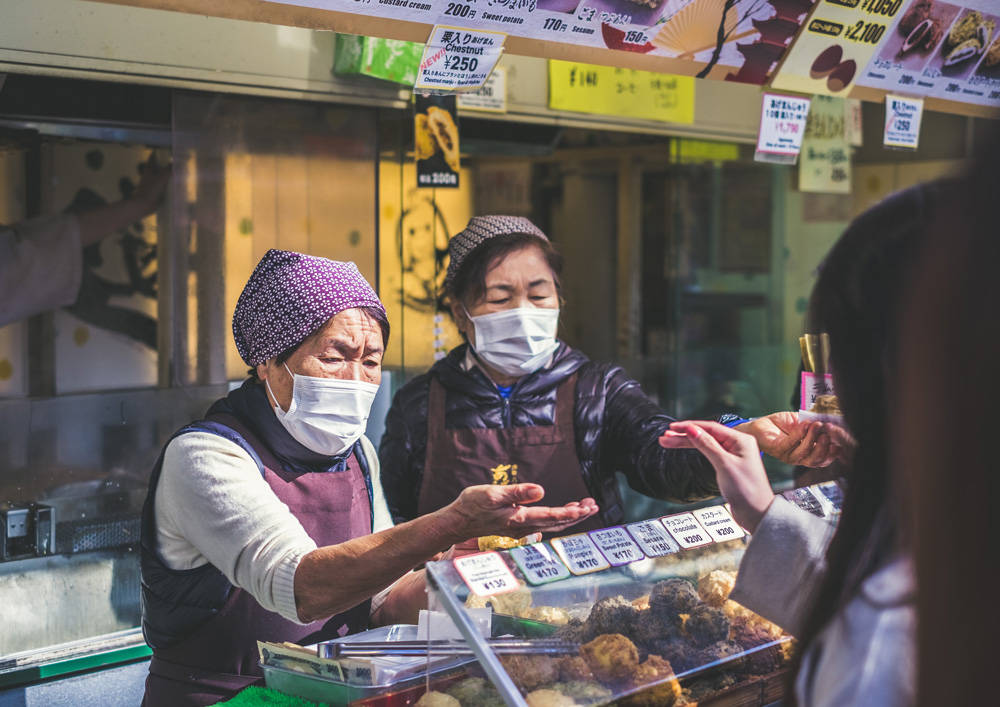Deserted supermarket shelves, vegetables left to rot in the fields, dairy farmers dumping milk, and a shortage of seasonal farmworkers – all are the signs that COVID-19 isn’t only impacting our health, but translates to our food. Magnifying the impacts of conflicts, climate change, poverty and inequality, the pandemic risks undoing years of development work and elevate hunger to catastrophic levels.
It is a crisis that has overwhelmed the capacity of many countries but many of its consequences were predictable and it’s vital that governments, businesses and the development community act now to prevent widespread human suffering, save economies and ensure social stability.
While stimulus packages and safety nets are the first concern, maintaining open trade and investing in nutrition-sensitive resilient value chains are key for mitigating the mid- and long-term effects the pandemic is having on food security.
This article gathers expert opinion and advise discussed during online meetings held by the Ceres2030 project and the Global Landscapes Forum.
Understanding the enemy
COVID-19 is disrupting supply chains. “There is a range of issues at play and they are interconnected. It is important to acknowledge this ravel and that risks may shift from one place to another over time,” says Jennifer Clapp (High Level Panel of Experts, HLPE CFS).
When farmers cannot get their produce to the market they are forced to waste it. The food losses are especially high for perishables, such as fresh vegetables, fruits, eggs, meat and dairy, affecting access to nutritious and healthy food. At the same time, panic buying and stockpiling food reduces availability for those who cannot afford to buy in bulk.
“Looking a bit further, it is expected that confinement measures and frozen economies will lead to a recession, which is likely to result in job and income losses. And people need income to buy food,” says David Laborde (International Food Policy Research Institute, FPRI).
He warns that policy makers have to avoid panic-based decisions and maintain open trade: “We are not seeing commodity prices getting volatile, instead commodity prices are falling. Right now, the food market is well supplied, especially when it comes to staples.”
In 2008 many countries, scared by the crisis, imposed trade caps and restrictions, which drove food prices up for everyone and further exacerbated poverty and inequality.
Falling commodity prices are likely to create challenges for trade-dependent countries because they will have to sell for a low but buy for the same level prices. However, it is not as bad as dealing with the consequences of closed trade routes and the related tension.
It is also crucial to remember the countries in Africa hit by several locust infestations – they will need to buy food, as will have to other countries suffering from climate-related adversities and conflicts. “We have one planet and people from different countries can support each other, no country is 100% resilient to the ongoing crisis,” says Laborde.
Winning over the crisis
COVID-19 is a call to move towards more resilient food systems, particularly focusing on local production and regional markets. “We have to start prioritizing resilience over efficiency and cooperation over competition. Increasing local capacity is one way,” says Jennifer Clapp.
As the recession proceeds and immediate coping resources are exhausted, people will switch to cheaper less nutritious foods. Poor diets compromise health and make people more susceptible to COVID-19. So, while it is absolutely essential to provide social protection so people have the means to buy food, it is just as important to ensure that nutritious food is available on the market.
“We should do whatever is possible to support farmers in their production and with access to seeds, fertilizers and other inputs as well as by ensuring the delivery of produce to the market through processing, trade and storage capacity,” says Christophe Bazivamo (East African Community Secretariat, EAC). He also calls for strong regional collaboration in search for common solutions to common problems.
Lawrence Haddad (Global Alliance for Improved Nutrition, GAIN) urges governments to support small and medium enterprises (SMEs): “ They are the backbone of the food system and require income and credit to continue to operate.” He notes that in many low-income settings SMEs lack administrative capacity and need support with accreditation and registration in order to receive aid and credit. Business associations could help with such support whilst larger business actors could contribute by investing in their supply chains in Asia and Africa, so the operations are ready for action once the lockdowns are lifted.
However, the roots of the food crises reach far deeper than these emergency response measures. Our food system was broken even before the pandemic, leaving billions of people malnourished and overweight, at the same time degrading soil, polluting water and destroying nature. “We must deal with the urgent needs, but we have to ensure that our food system is prepared to deal with the hunger and the climate crises too,” says Clapp.
COVID-19 has made us painfully aware that human, animal and environmental health are indivisible and that they are all connected to our social and economic wellbeing. Like with human rights, one doesn’t get to pick and choose one right to protect, but has to either adopt or reject them all. Similarly, food security actions need to consider health, nature, livelihoods and hunger to understand the trade-offs and determine robust solutions.
“The way we are going to exit the crisis and the type of reforms we are going to implement can be the source of the next crisis,” says Laborde.
Reporting by Ekaterina Bessonova, Communications Officer, SIANI.
